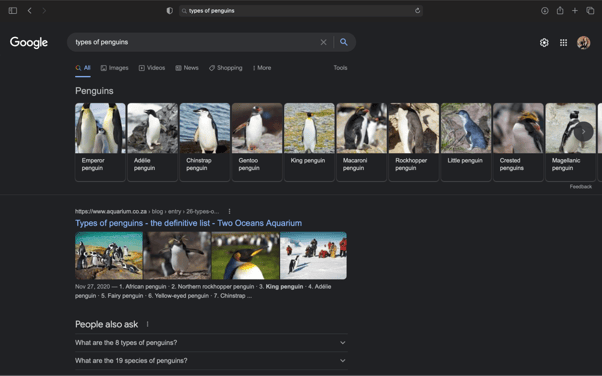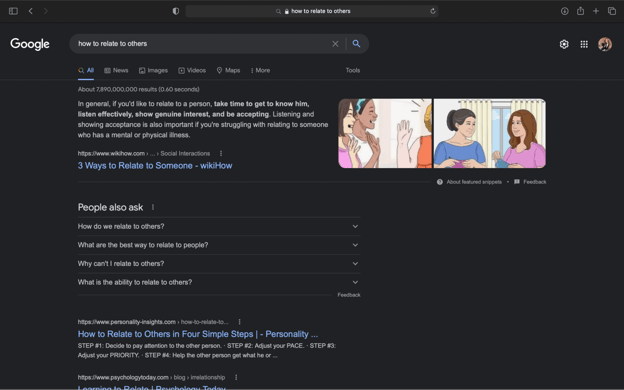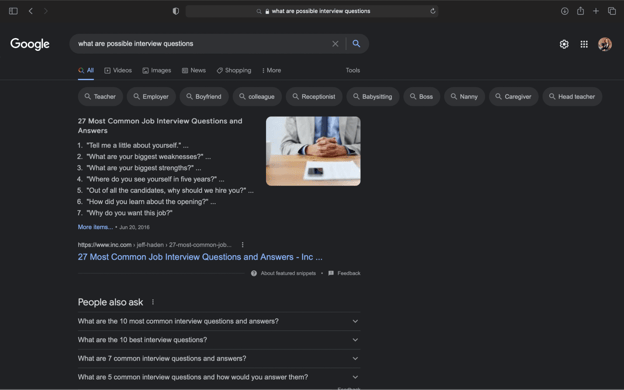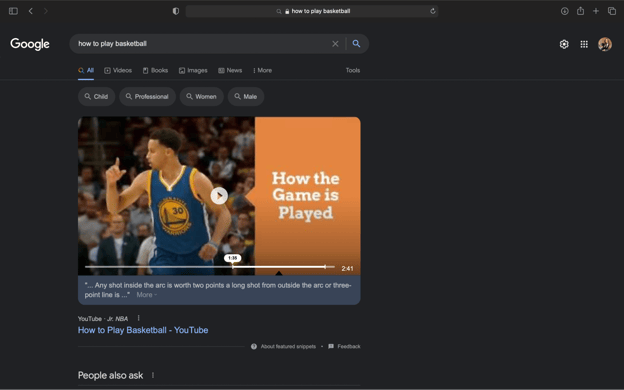 With the large number of brands available to an even larger number of people, you have to find a way to reach your potential customers. The best way to do this is to create a list of SEO keywords for your company.
With the large number of brands available to an even larger number of people, you have to find a way to reach your potential customers. The best way to do this is to create a list of SEO keywords for your company.
SEO keywords are words or phrases that consumers type in a browser to find what they are looking for. You want to associate the phrases your target audience is using with your company or website. But to find the best keywords for your company, you must first conduct keyword research.
Audio: Listen to this article.
Keyword research will help you understand what your target audience is typing into the Google search bar. By better understanding their lingo, you can determine a list of keywords that relate to your brand and understand what your target audience thinks of your company. Keyword research not only helps you generate keywords but also gives you insight into marketing trends, traffic growth, and customer acquisition.
When conducting your keyword research, focus on relevance, authority, and volume. Google ranks content based on relevance; your content will only rank if a keyword meets the consumer’s needs. You must understand authority because Google provides more weight to authoritative sources; to make your site more authoritative to Google, your site must have helpful information and content. If your site isn’t deemed authoritative or your competitors are far more authoritative than you, then your rank falls, and it is less likely your target audience will find you. Finally, you need to be aware of volume because you may show up on the first page for a search with a specific keyword, but if no one is searching that keyword, then it's pointless. Therefore, you need to have several keywords that produce high search results.
Now that you know what SEO keywords are and why they’re important, you need to learn how to research them with these five steps:
- Make a list of important, relevant topics based on what you know about your company
First, think of topics you want to rank high for when your target audience searches for them. Come up with five to 10 of these topics. If you were a PR agency like Axia Public Relations, you might choose topics like:
- “Brand awareness”
- “Image crisis”
- “Public relations”
- “Cybersecurity”
- “News, social, web media”
And so on.
- Come up with keywords for those topics
Now that you have some topic ideas, you want to identify keywords that fall into those specific topics. These should be keyword phrases you think are important for the search engine results pages. For example, if I took the topic idea of cybersecurity, I’d brainstorm some keyword phrases I think our target audience would search in relation to that topic. These could be:
- Ransomware
- Phishing
- Malicious emails
- Data breach
- Malware
- Multi authentication
- Strong passwords
The goal here is to name as many possibilities you think potential customers would use. You’ll narrow down the list in a later step. Repeat this process for each topic idea you have.
- Understand how intent affects keywords research, and analyze accordingly
Nowadays, it's more important for your page to address the intended problem a searcher has than just using the right keyword phrases they would search. How does this affect you, though? Well, you have to think about the intent behind your keyword phrases. For example, think about someone searching the phrase, “How to use social media.” Does the searcher want to know how to use a certain social media platform, or do they want to know how to use social media to influence a certain audience? This is where you need to understand your audience. If you're not sure where your keywords are leading your audience, you can always type them into a search engine yourself to get an idea if you're on the right track or not.
- Research related search terms
Now if you're struggling to come up with keyword phrases, you can always search a specific topic and look at the related search terms. This is located at the bottom of the page when you search a topic in Google.
- Use keyword research tools to your advantage
Keyword research, along with SEO tools, can help you come up with more keyword phrase ideas. Here are some popular ones:
Now that you know how to research potential keyword phrases, you need to know how to choose the most efficient ones for your company. You can weed through your potential keyword phrases with the following six steps:
- Use Google Keyword Planner to cut down your keyword list
In Google Keyword Planner, you can get search volume and traffic estimates for your potential keywords. You can flag any keywords that provide far too little volume or traffic, or keywords that don’t diversify your list. It’s important to have keywords that your competitors don’t use.
- Prioritize low-hanging fruit
Claim keywords that give you a better chance of ranking high in a search engine over high-volume keywords. Large companies often use these high-volume keywords, and larger companies may overpower your SERP performance. So, choose keywords that are specific to you and aren’t a general, high-volume keyword.
- Check the monthly search volume for keywords you’ve chosen
The monthly search volume is how many times someone searches a certain keyword in a certain month. You can use this to see what your target audience is searching and compare with your keyword phrase list.
- Factor in SERP features as you choose keywords
There are multiple SERP features that show up for some keyword phrases. This is something that can influence search results and therefore is something you need to be aware of. To determine if one of your keyword phrases is a part of one of these features, you can search your keyword phrases. The features that might pop up are image packs, paragraph snippets, list snippets, and video snippets.
Image packs are search results that display as a row of images. If your keyword phrase results in an image pack, then you need to write an image-heavy post to compete and win a better placement.

Paragraph snippets answer common search queries and display as small snippets of text. To win placement with these, you need to write clearly and concisely while hitting what your target audience needs to know.

List snippets outline steps for how to do something. To rank higher up with these, you need to write concisely, have clear instructions, and use bulleted or numbered formatting.

Video snippets appear as short videos, rather than a text selection. You need to post a video on YouTube or on your website to help rank higher among these search results.

- Check for a mix of head terms and long-tail keywords for each topic
Head terms are general, shorter keywords, and long-tail keywords are longer versions of those that contain three or more words. You want a mixture of these because they help you with short-term and long-term goals. Head terms are usually searched more frequently but are used more often and are more competitive. Long-tail keywords make it easier to tell what people are really searching for, and they are more unique to your company.
- See how competitors are ranking for these keywords
Don’t use keywords just because your competitors use them. However, it is helpful to know what your competitors are ranking for. If your competitors rank high for a keyword you also use, then you might want to step up your game. You also shouldn’t ignore the keywords they are ignoring. This is a great opportunity to rank high for a keyword unique to your company in that specific market.
Now, before you choose the keyword phrases you want to use for your company, there are a few things to be weary of. These are the three things you should avoid doing before choosing your SEO keyword phrases.
- Only doing SEO keyword research once
- Not bothering to update and expand your SEO keyword list
- Targeting keywords that are too popular or too competitive
It’s important to find SEO keywords that work in your company’s best interest, especially in the tech-savvy world we're in today. This will help you determine the right keyword phrases for you and your target audience. If you need help promoting your company via SEO, book a free consultation today.
Photo by Startup Stock Photos from Pexels
Topics: SEO, owned media, web media


Comment on This Article